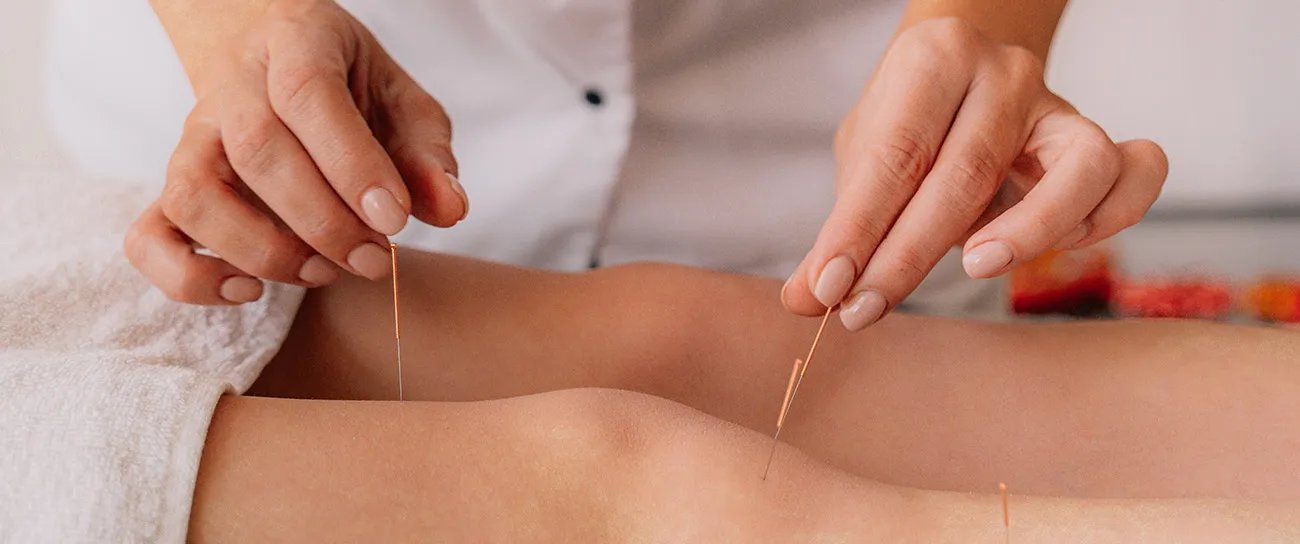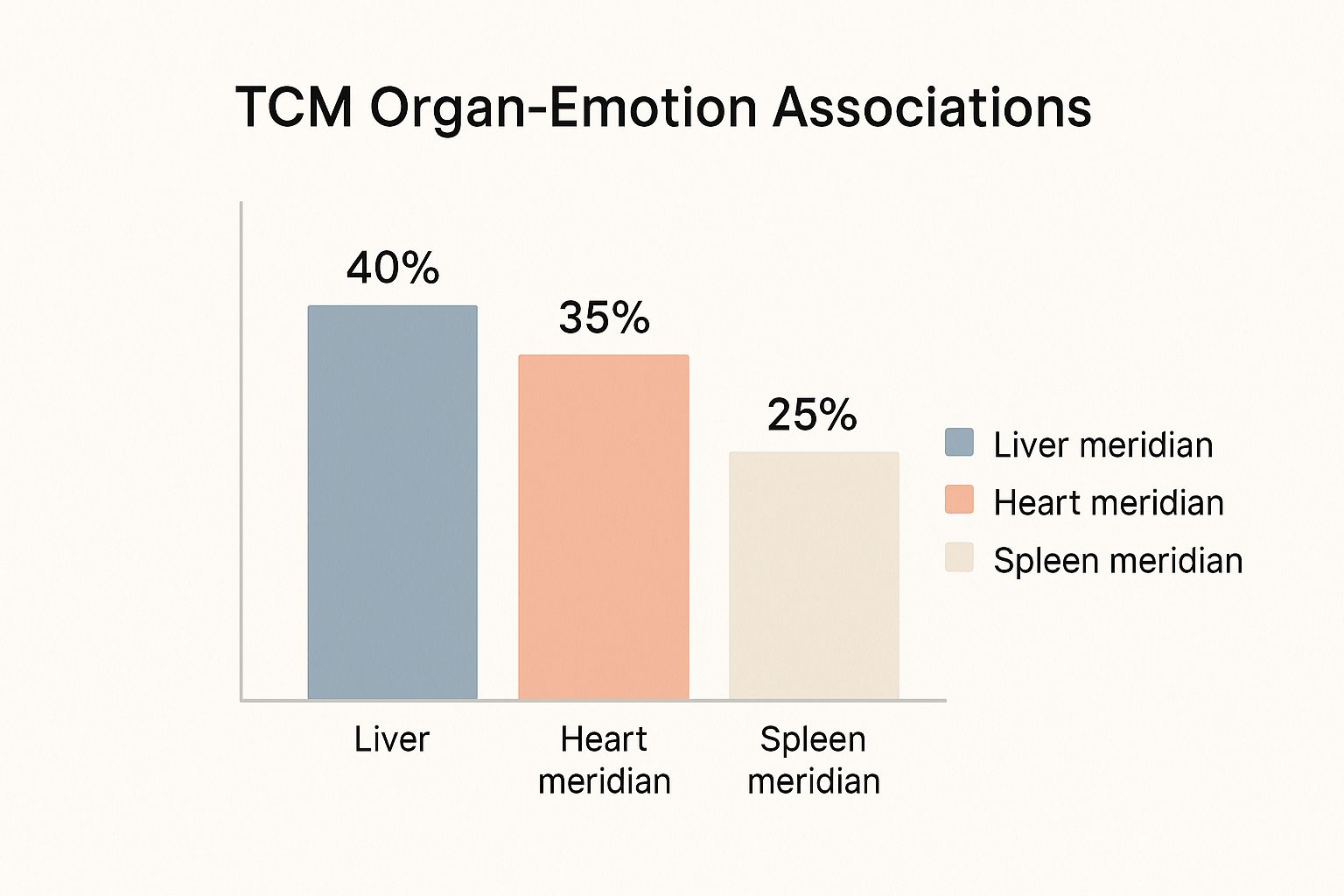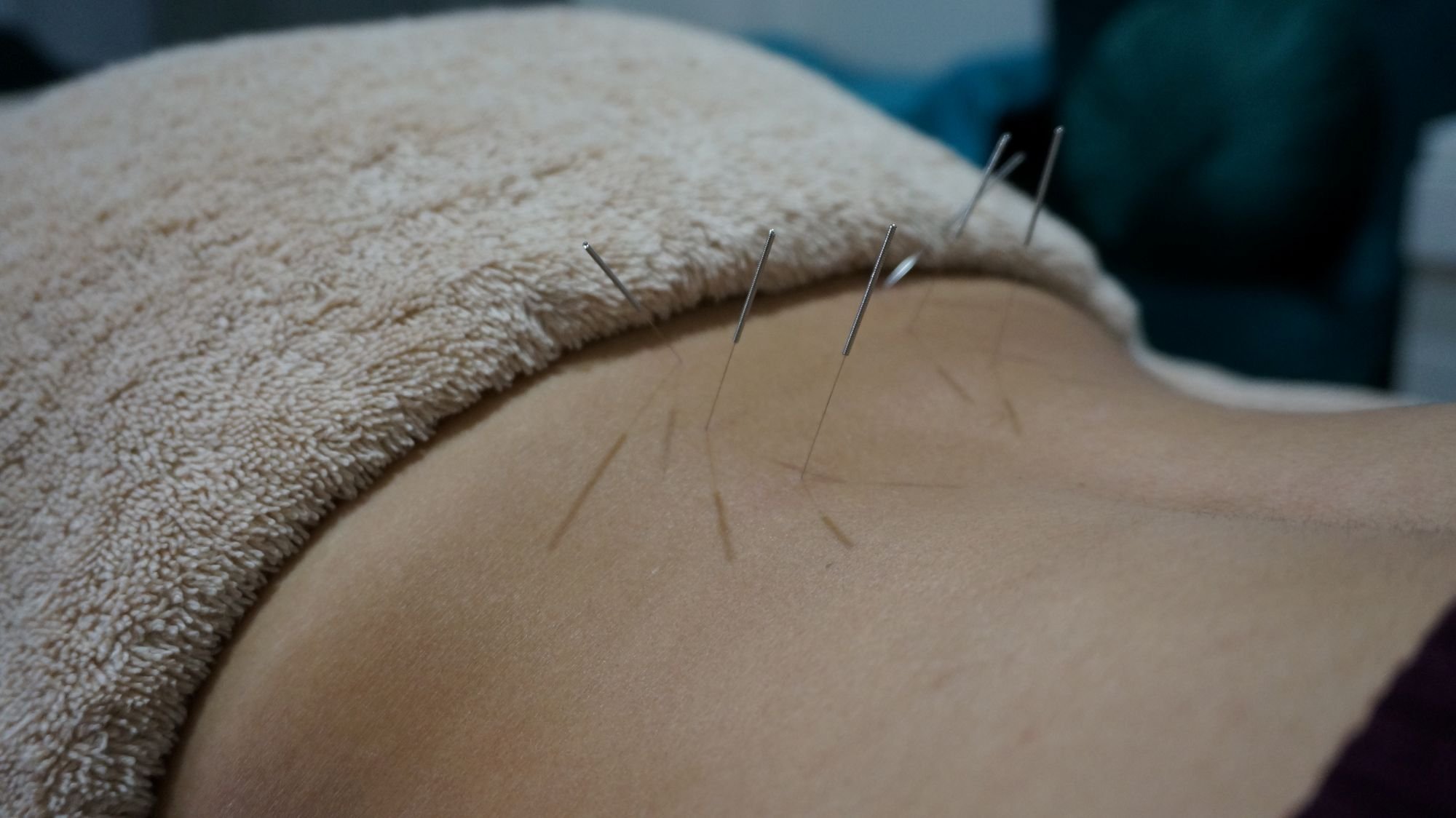Acupuncture stands out as a holistic healing practice embraced by many individuals seeking relief from the overwhelming feelings associated with stress and anxiety. This ancient technique focuses on the precise insertion of ultra-fine, sterile needles into specific points across the body. The goal is to stimulate the body’s intrinsic healing mechanisms, fostering a deep sense of calm and relaxation that many find beneficial in their wellness journey.
Discover How Acupuncture Can Transform Your Stress and Anxiety Relief Journey

Stress and anxiety present significant hurdles within modern Australian society, impacting a substantial portion of the population. When these feelings linger and begin to interfere with daily activities, it is entirely reasonable to seek effective methods for regaining control over your mental health and overall wellbeing. For numerous Australians, integrating acupuncture into their holistic health practices has emerged as a vital tool in their quest for comprehensive wellness.
Grounded in the principles of Traditional Chinese Medicine (TCM), acupuncture seeks to promote the unobstructed flow of energy, referred to as Qi, throughout the body. Recent scientific inquiries suggest that stimulating specific acupuncture points may positively influence the nervous system, helping to regulate the body’s natural responses to stress, commonly known as the ‘fight or flight’ response.
Incorporate Acupuncture Into Your Holistic Wellness Plan for Maximum Benefits
Understanding acupuncture as a complementary element within a broader wellness framework is beneficial. A qualified practitioner often recommends it as an essential aspect of a holistic approach to enhancing your overall health and wellbeing.
This all-encompassing strategy typically involves collaboration with your general practitioner (GP) or a mental health professional, along with implementing positive lifestyle modifications. Key adjustments may include:
-
Engaging in regular physical activity to elevate your mood and increase energy levels.
-
Prioritising restorative sleep and incorporating relaxation techniques into your routine.
-
Adopting a balanced diet rich in essential nutrients to support mental health and emotional stability.
Acupuncture is often integrated into various health strategies. The primary aim is not solely to alleviate symptoms but also to strengthen your body’s natural systems and enhance resilience against stress.
To elucidate these essential concepts, the following table outlines the core components of acupuncture’s role in promoting health.
Essential Principles to Understand Acupuncture’s Health Benefits
|
Concept |
Brief Explanation |
|---|---|
|
Traditional Chinese Medicine (TCM) |
A holistic health system that perceives the body as an interconnected whole, where physical and emotional wellbeing are intricately linked. |
|
Qi (pronounced ‘chee’) |
The vital energy or life force that circulates through the body along pathways known as meridians, crucial for maintaining health. |
|
Acupuncture Points |
Specific locations on the body where Qi can be accessed and manipulated to enhance health and functionality. |
|
Nervous System Regulation |
Modern research highlights how acupuncture may assist in calming the body’s stress response. |
Grasping these foundational concepts clarifies how a tailored treatment plan can unfold in practice.
What Should You Anticipate During an Acupuncture Treatment Session?
Your first acupuncture appointment commences with a comprehensive conversation. A qualified practitioner will take the time to understand your specific health concerns and goals before initiating any treatment.
Once you feel at ease, fine needles will be gently inserted at thoughtfully chosen points on your body. Following this, you will have the chance to relax in a tranquil environment, allowing the effects of the treatment to take hold.
In addition to the acupuncture process itself, your practitioner may introduce complementary therapies. For instance, insights into Chinese herbal medicine can provide a broader understanding of nurturing health from this traditional perspective. This integrated approach ensures that your care is tailored to your individual needs, supporting you on your journey toward improved wellbeing.
Analyzing the Widespread Impact of Stress Across Australia

It is widely acknowledged that stress and anxiety play a significant role in the daily lives of many Australians. The balancing act of work, family responsibilities, and personal obligations can accumulate, leading individuals to seek effective methods to manage their overall wellbeing. Recognising the prevalence of these emotions highlights why supportive therapies like acupuncture are on the rise.
The statistics reveal a concerning situation. According to a report from the Australian Bureau of Statistics (ABS) spanning 2017–18, 25% of Australians reported experiencing high or very high levels of stress. Notably, women reported elevated levels (28.5%) compared to men (21.6%), underscoring the urgent need for effective support.
What Is the Connection Between Mental Stress and Physical Symptoms?
The experience of feeling ‘stressed out’ rarely exists solely in the mind. Chronic stress often manifests physically, prompting many individuals to seek assistance.
The Australian Psychological Society (APS) indicates that 72% of Australians experiencing elevated stress levels also exhibit physical symptoms. This statistic serves as a crucial reminder of the intricate relationship between mental and physical health. For further insights into the impacts of stress, visit healthinflow.com.au.
Common physical manifestations linked with persistent stress include:
-
Chronic fatigue or an overwhelming sense of energy depletion.
-
Frequent headaches or migraines that disrupt daily activities.
-
Tension in muscles, particularly in the neck and shoulders, leading to discomfort.
When these physical symptoms become an integral part of life, it naturally drives individuals to seek effective solutions.
Recognising the connection between emotional states and physical sensations is a crucial step in addressing holistic health. This understanding illustrates why a comprehensive approach to wellness, incorporating practices like acupuncture for stress and anxiety, can yield beneficial outcomes.
The increasing necessity for effective stress management has spurred interest in various supportive therapies. More individuals are exploring practices that complement their existing healthcare routines and address both the psychological and physical dimensions of stress.
Traditional Chinese Medicine Insights on Achieving Emotional Harmony
Viewing emotional wellbeing through the lens of Traditional Chinese Medicine (TCM) offers a distinctive perspective compared to conventional Western medicine. Rather than focusing exclusively on brain chemistry, TCM adopts a holistic approach, recognising the body as an interconnected system where emotions and physical health are two sides of the same coin.
Central to this philosophy is the concept of Qi (pronounced ‘chee’), which represents the body’s vital energy or life force. This energy is meant to flow seamlessly through designated pathways known as meridians. When your Qi flows freely, you typically experience a sense of balance and overall wellness.
However, factors such as prolonged stress, excessive thinking, or sudden traumatic experiences can disrupt this flow, resulting in stagnation. TCM often correlates this disruption with feelings associated with stress, irritability, or anxiety.
How Do Your Organs Influence Your Emotional Wellbeing?
Within TCM, specific organ systems are identified as foundational to particular emotions. This perspective extends beyond the physical organs described in anatomy; it encompasses broader functional networks that impact both physical and emotional health.
When addressing issues related to stress and anxiety, two organ systems typically draw significant attention:
-
The Liver System: This system plays a vital role in ensuring the smooth flow of Qi throughout the body. When Liver Qi becomes stagnant—often due to frustration or unresolved stress—it can manifest as irritability and tension headaches.
-
The Heart System: In TCM, the Heart is seen as the home of the mind and spirit, referred to as the ‘Shen’. An imbalance within this system can provoke feelings of anxiety, restlessness, and sleep disturbances, which contribute to poor sleep quality.
From this traditional perspective, addressing emotional imbalance is not about suppressing feelings; it is about identifying where the Qi is blocked and applying acupuncture to restore its natural flow.
Understanding these fundamental principles clarifies why practitioners select specific acupuncture points. They utilise distinct diagnostic methods to identify these patterns within your body. For a deeper understanding of how this diagnostic process works, refer to our guide on TCM diagnostic methods.
What Does Contemporary Research Reveal About Acupuncture and Anxiety Management?
While Traditional Chinese Medicine provides a rich, time-honoured framework for emotional health, contemporary science is beginning to catch up. Researchers are investigating how acupuncture may influence the body’s stress responses, providing an additional lens on its efficacy.
When examining scientific literature, it is clear that the language used is often cautious and measured. Research tends to focus on elucidating how acupuncture functions rather than making definitive claims. The prevailing consensus suggests that acupuncture can serve as a valuable part of a comprehensive strategy for managing anxiety symptoms, particularly in studies comparing it to placebo or control groups.
Growing Evidence Supporting Acupuncture’s Effectiveness
Recent high-quality reviews are starting to reveal promising trends. The Acupuncture Evidence Project, a thorough examination of scientific literature, identified moderate evidence supporting acupuncture’s efficacy in treating anxiety, classifying it as having an ‘Evidence of Potential Positive Effect’.
Out of 1,135 clinical studies analyzed on this topic, 13 were recognised as high-quality studies, reporting positive outcomes for acupuncture in comparison to control groups. An Australian-focused review indicated that 11 of these 13 studies demonstrated statistically significant reductions in anxiety symptoms. If you wish to delve deeper into the data, our Evidence Based Acupuncture website offers valuable insights.
The infographic below illustrates which organ-meridian systems are most frequently targeted in clinical practice when addressing stress and emotional imbalances.

As depicted, the emphasis is significantly placed on the meridians typically associated with processing emotions, managing stress, and achieving mental clarity.
It is crucial to remember that scientific understanding is continually evolving. The research we have at present is encouraging, yet it constitutes only a fraction of an ongoing, broader discourse. For practitioners, this evidence assists in making informed, balanced decisions when developing supportive care plans for clients.
What Should You Expect During Your Acupuncture Appointment?

Walking into your first acupuncture appointment may stir feelings of uncertainty; however, the process is designed to be calming, professional, and centred around you. We follow a clear, step-by-step protocol to ensure you feel relaxed and supported from the moment you enter.
Your initial session begins with an in-depth discussion with our registered practitioner. This is where we examine your health history, the specifics of your stress and anxiety symptoms, and your desired outcomes. This thorough conversation is vital for creating a personalised treatment plan tailored to your unique needs.
After our discussion, you will be invited to recline comfortably on a treatment table. The practitioner will then gently insert ultra-fine, sterile, single-use needles into designated acupuncture points on your body.
Understanding the Treatment Process for Maximum Benefit
Once the needles are accurately positioned, your primary responsibility is to relax. Most clients lie quietly in a serene environment for approximately 20 to 30 minutes.
What should you anticipate feeling? Generally, the sensation is subtle. Many individuals report experiencing a dull ache or a slight tingling sensation at the needle insertion point, which often dissipates quickly, leading to an overall sensation of relaxation.
The number of needles and their precise placement are determined based on the discussions we had during your initial consultation. When applying acupuncture for stress and anxiety, we select points well-regarded for their ability to soothe the mind and regulate the body’s responses to external pressures.
At JG Alternative Healthcare, our practitioner is registered with the AHPRA, ensuring you receive both professional and safe care.
If you are eager to discover how this process can benefit you, beginning your journey is simple. You can schedule your first consultation by checking our Melbourne acupuncture clinic appointments online.
Addressing Common Concerns About Acupuncture for Effective Stress Management
It is entirely natural to have questions when considering a new approach to your health. Let’s explore some of the most frequently asked questions regarding the use of acupuncture to manage stress and anxiety.
Does Acupuncture Cause Pain?
For most individuals, the answer is no. Acupuncture needles are extraordinarily fine—approximately the same thickness as a human hair. They differ significantly from the needles used for injections or blood tests.
You might experience a brief prick or a gentle ache during needle insertion, but this sensation typically fades within seconds. After the needles are correctly positioned, many clients describe sensations of profound relaxation and calm.
How Many Sessions Are Generally Required for Effective Results?
This question is highly individual, as each person’s body and circumstances vary. The number of sessions you may need depends on multiple factors, including the duration of your symptoms and your overall health status.
During our initial consultation, we will discuss your specific situation in detail. From this conversation, I will recommend a treatment plan tailored to your unique needs, and we will consistently monitor your progress.
Can Acupuncture Be Combined with Other Treatments for Enhanced Results?
Absolutely. Acupuncture can effectively complement other forms of care. Many individuals find that it enhances the treatments they are currently receiving from their GP, psychologist, or other healthcare providers.
The essential point is to maintain open communication. Always inform your health team about all therapies you are engaging in. This ensures that your care remains safe, coordinated, and works synergistically to benefit you.
Is Acupuncture Considered Safe for All Patients?
When conducted by a registered and qualified practitioner, acupuncture is classified as low-risk. In Australia, acupuncturists must be registered with the Australian Health Practitioner Regulation Agency (AHPRA).
This registration guarantees that your practitioner adheres to rigorous national standards for safety, hygiene, and professional conduct. It also assures that only sterile, single-use needles are employed during treatments.
Why Is Acupuncture Gaining Popularity for Anxiety Management in Australia?
Anxiety has emerged as the most prevalent mental health condition in Australia, affecting approximately 14% of the population annually. Given such a significant number of individuals impacted, the demand for supportive, evidence-based options is on the rise. Some studies suggest that acupuncture may alleviate anxiety symptoms, often with fewer side effects compared to other conventional treatments. For a deeper understanding of the research surrounding acupuncture and anxiety, click here.
The purpose of acupuncture is not to supplant conventional medical treatments but to act as a supportive partner alongside them. It constitutes one piece of a larger puzzle in managing your overall wellbeing.
We hope these responses provide clarity on how acupuncture may fit into your health strategy.
Are you ready to explore how our registered practitioner can assist you? Connect with JG Alternative Healthcare today.
Melbourne Acupuncture Clinic – Book an Appointment at Moonee Ponds or South Morang at https://jghealthcare.com.au
The Article: Acupuncture for Stress and Anxiety: A Clear Guide first appeared on https://writebuff.com
The Article Acupuncture for Stress and Anxiety: Your Essential Guide Was Found On https://limitsofstrategy.com


